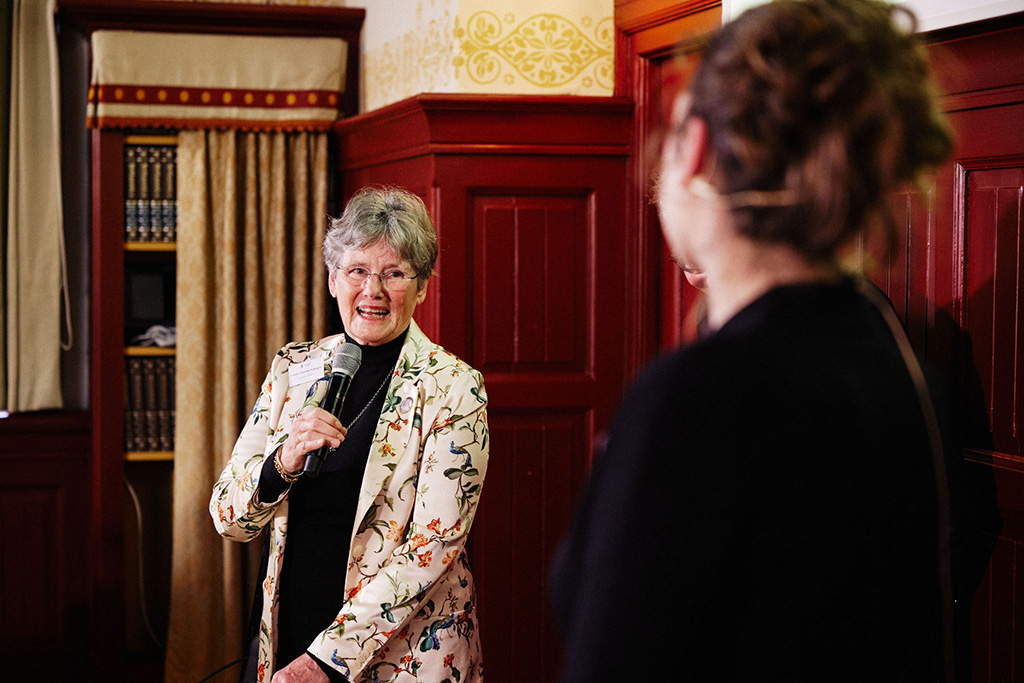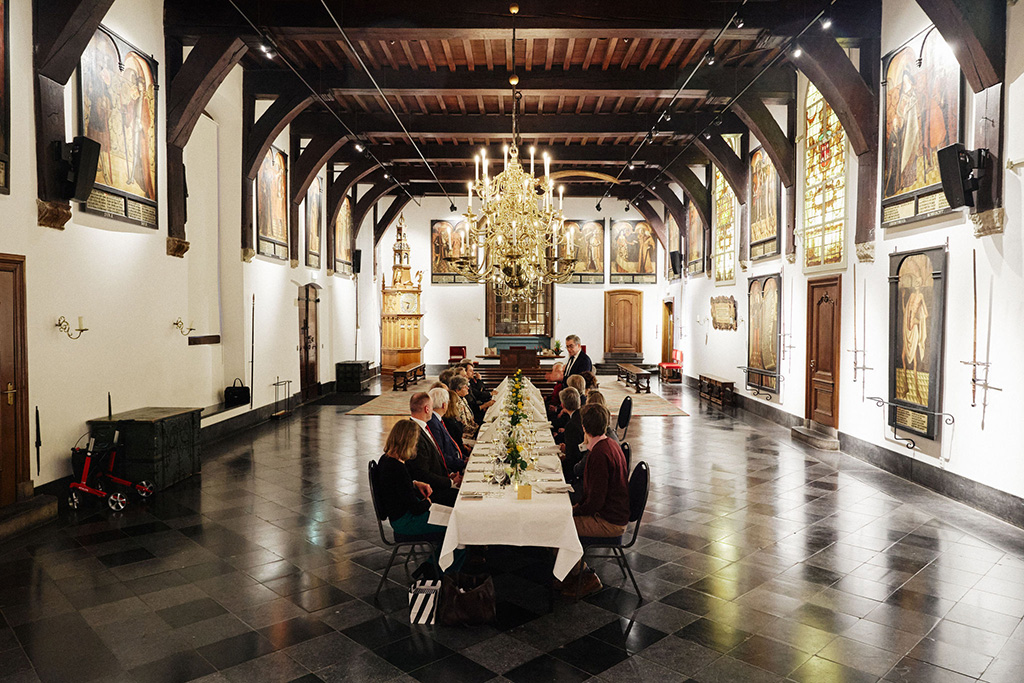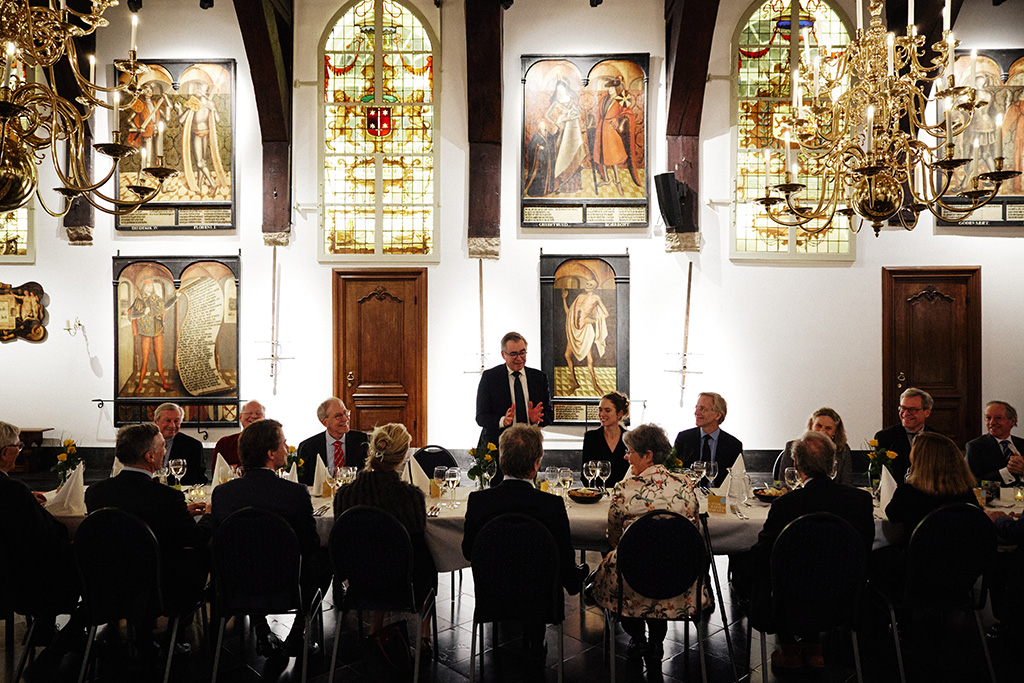
What drives humans? How Mariska Kret manages to touch science with her emotion research
In zoos, at festivals and in a mobile lab at the market: everywhere, Mariska Kret tries to understand human and animal emotions with her distinctive behavioural research. Now she has received the Mercator Sapiens Stimulus of €1 million for her efforts.
Curiosity
Is the Netherlands' oldest scientific society a gentlemen's club? Even though Louise Gunning-Schepers is president of the Royal Holland Society of Sciences (KHMW), the Hodson House on the Spaarne in Haarlem breathes gentlemen's society. All the better that the latest research prize has been awarded by the KHMW to a young woman. Cognitive psychologist Mariska Kret has that unrestrained curiosity that you don't yet know exactly what and where it will take her. That curiosity that Ben Feringa recognised in himself as a young researcher with the looks of a rockstar and which has now earned him the status of rockstar scientist. Nobel laureate Feringa sits in the front row bouncing with enthusiasm at the presentation of Kret, the first laureate of the Mercator Sapiens Stimulus.
-

Mariska Kret, first laureate of the Mercator Sapiens Stimulus (photo: Wardie Hellendoorn) -

Louise Gunning-Schepers, former president of the UvA and now chairman of the KHMW (photo: Wardie Hellendoorn) -

Presentation Mariska Kret, in the front row Nobel laureate Ben Feringa, chairman KHMW Louise Gunning-Schepers, outgoing minister of education, culture and science Robbert Dijkgraaf (photo: Wardie Hellendoorn) -

Diner at the Gravenzaal of the city hall Haarlem with Mariska Kret, speakers, the board KHMW, members of the jury Mercator Sapiens Stimulus and chairman of the jury Alexander Rinnooy Kan, honorary member KHMW (photo: Wardie Hellendoorn) -

Speech Jos Wienen, mayor of Haarlem (photo: Wardie Hellendoorn)
Touchscreen in the ape enclosure
Kret talks about the dating experience and synchronisation of heart rate and pupil size at Lowlands; a music festival she clarifies to the audience with charming smile. About a similar experiment with physiological measurements but for research on cooperation. About monkeys with touchscreens at the zoo using them out of curiosity. 'Completely of their own accord,' Kret emphasizes. We follow their eye movements when those monkeys see pictures of fellow monkeys. We see a video showing monkeys working together with two ropes to hoist up food. Such behavioural research of humans and monkeys using computer techniques makes her a distinguished scientist. This research is also the subject of her book, Between Smiles and Grimaces. Expressions of emotion in humans and animals.
FSW dean Sarah de Rijcke: 'This award recognises Mariska Kret's creative research and strengthens the social sciences as a whole.'
What drives humans?
Chair of the jury Alexander Rinnooy Kan is impressed by the versatility of researcher Kret and the frankness of columnist Kret in NRC. In her column, she sheds light on the combination of motherhood and science: A third of new mothers quit science. 'If I don't speak up, then who will?' Kret poses the question. To answer it directly: 'If universities want to counteract the outflow of valuable talent, they need to move away from mere words about gender equality.' The KHMW has nothing but praise for Kret. And, of course, there's the 1 million euros, intended for her new research question: what drives humans?
Mercator sapiens - the wise merchant
The private funding of the Mercator Sapiens Stimulus through the Hartwig Foundation does not come out of the blue. Ever since the founding in 1629 of Athaeneum Illustre, the forerunner of the University of Amsterdam, there have been warm ties between the city council, the merchant and the cultural elite that preferred to educate its sons close to home rather than in Leiden, where students were first outed away from the parental home.
Professor of Literature Barlaeus (Caspar van Baerle) is persuaded to swap Leiden University for a chair of philosophy in Amsterdam. Barlaeus also writes as an occasional poet, for example for the wealthy Amsterdam merchant family Bicker, revealing the links between capital and knowledge. According to the professor, a wise merchant is someone who values wealth; such a 'mercator sapiens' uses his capital for study. In Rinnooy Kan's words: 'Investing in a share on the stock market is like investing in a share of knowledge.' The Mercator Sapiens Stimulus fits into this tradition.'
To the stage
Lotte van Dillen is research director at Institute of Psychology and thinks the idea of 'the mercator sapiens', or the 'wise merchant', is also a good metaphor for current scientific practice. 'In that, as a scientist, you are sometimes also a kind of merchant and you have to take the stage with your research to highlight its value. Mariska is an example of a scientist who does innovative and relevant research and is also able to put it in the spotlight.
Sarah de Rijcke, dean of the Leiden Faculty of Social Sciences (FSW) agrees: 'This award recognises Mariska Kret's creative research and strengthens the social sciences as a whole. I am delighted that she and her research group will now have the resources to further deepen her line of research in the coming years.'
Banner: Presentation Mariska Kret, first row from left to right Louise Gunning-Schepers, Robbert Dijkgraaf, Alexander Rinnooy Kan (photo: Wardie Hellendoorn)
